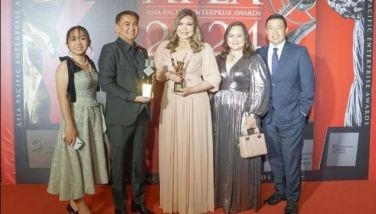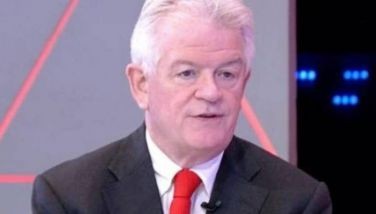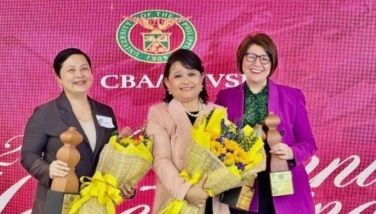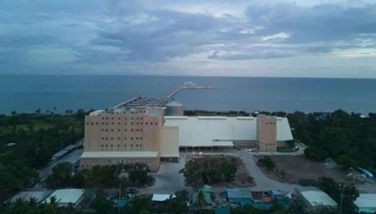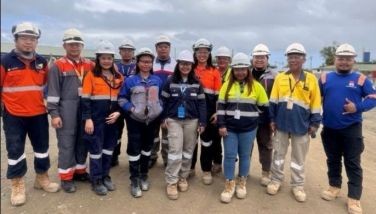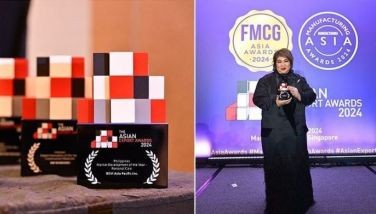BDO Foundation at the forefront of CSR evolution
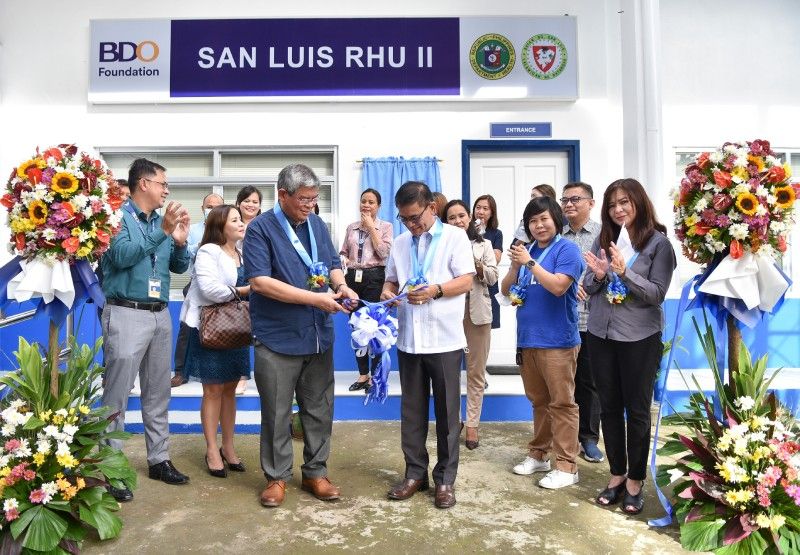
MANILA, Philippines — BDO Foundation, the corporate social responsibility (CSR) arm of BDO Unibank, is starting off the year on a high note as it continues to broaden its outreach in the fields of financial inclusion, disaster response and rebuilding, and healthcare improvement.
Riding on the gains made in 2022, BDO Foundation is raising the bar for CSR further with new programs and initiatives that address the needs of the underserved population—impoverished Filipinos with no or limited access to quality healthcare, financial services or even basic education.
Mario A. Deriquito, who has been at the helm of BDO Foundation since 2017, says while the task at hand seems daunting, “you just do work for the community, for those in need. As much as possible, we also try to align our programs with the Sustainable Development Goals (SDGs).”
The 17 SDGs were adopted by the United Nations in 2015 as a universal call to action to end poverty, protect the planet and ensure that by 2030, all people enjoy peace and prosperity. These SDGs are integrated, meaning they recognize that action in one area will affect outcomes in others, and that development must balance social, economic and environmental sustainability.
But for every nation, creativity, know-how, technology and financial resources from all sectors are necessary to achieve the SDGs in every context. In this area, BDO Foundation makes a significant contribution toward accomplishing the country’s SDG commitments.
Bridging the financial divide
Since it started in 2008, BDO Foundation has developed and implemented various programs to address social problems. At the core of these programs is its expertise—financial education and services—which it hopes would extend to those sorely lacking in financial literacy and help them integrate into the financial arena, which is the essence of financial inclusion.
The Bangko Sentral ng Pilipinas (BSP) defines financial inclusion as a state in which everyone, especially the vulnerable sectors, has effective access to a wide range of financial services. Effective access means not only the availability of financial products and services, but that these products and services are appropriately designed, of good quality and responsive to the varied needs of individuals and businesses—whether for saving, payments, financing, investing, or getting insured.
In its report, BDO Foundation says through its financial inclusion pillar, it aims to make financial education and financial services more accessible to people, especially the underserved. Under this pillar, BDO Foundation has two main programs: financial literacy or financial education and capability-building for small entrepreneurs.
Deriquito says the scope of their financial inclusion program is mostly on education, in support of the BSP’s National Strategy for Financial Inclusion (NSFI), under which the government targets to reduce a number of disparities: bringing up the number of basic bank deposit accounts from 29% of the adult population in 2019 to 90% in 2028; bumping up borrowings from formal sources from 56% to 75%; and increasing the percentage of adults with investments in financial assets from 25% to 50%, among others.
“One of the four pillars of the NSFI is financial education. We think that is where we can contribute the most. So we entered into a strategic partnership with the BSP and offered to help them bring financial education to different sectors,” Deriquito says.
The flagship program for financial education is BDO Foundation’s partnership program with the Department of Education (DepEd) and BSP. Dubbed the Financial Education Program for Schools, the initiative supports DepEd’s efforts to strengthen financial literacy in its K-12 Curriculum and provide financial literacy education for students, teachers and non-teaching personnel.
Part of the program is the deployment of financial literacy videos produced by BDO Foundation in collaboration with DepEd and BSP. These videos, accompanied by discussion guides and lesson plans developed by DepEd master teachers, are designed to make lessons on financial management engaging and compelling for students and teachers.
Deriquito says its financial education program has since been expanded to include partnerships with the Overseas Workers Welfare Administration (OWWA) for overseas Filipino workers (OFWs), the Armed Forces of the Philippines (AFP) for soldiers, the Bureau of Fisheries and Aquatic Resources (BFAR) for fisherfolks, the Civil Service Commission (CSC) for government employees, the Bureau of Fire Protection (BFP) for firefighters and the Philippine National Police (PNP) for police personnel.
In partnership with SM Foundation under its Kabalikat sa Kabuhayan program, BDO Foundation also extended its financial education program to fruits and vegetables farmers who participate in the training program.
Deriquito cites studies made by the BSP showing a still huge percentage of unbanked adult population, “so we provide materials that teach how to save, how to invest, how to avoid scams and how to borrow responsibly.”
He points out that in one consultation forum with OWWA and the Department of Migrant Workers, the agencies noted that despite years of hard work abroad, some OFWs feel their earnings have not been put to good use.
“So we saw that we need to train the OFWs and their families with the basic skills and tools on financial literacy and aid them in putting their earnings into savings or investments and then eventually, help them come back here and reintegrate into society.”
BDO Foundation has also started to engage local governments in training market vendors, tricycle drivers and the like on basic financial literacy. In fact, Iloilo City Mayor Jerry Trenas has tapped BDO Foundation to implement a training program for about 5,000 market vendors.
“We will train the trainers, about 15 to 20 of them, and provide them the kits and then they will do the actual training of the market vendors.”
Meanwhile, the capability-building program for small entrepreneurs is a partnership initiative with BDO Network Bank, the community banking arm of BDO. The program focuses on building the small entrepreneurs’ capabilities in business development and management, financial management and market linkages.
Finding ways with pilot projects
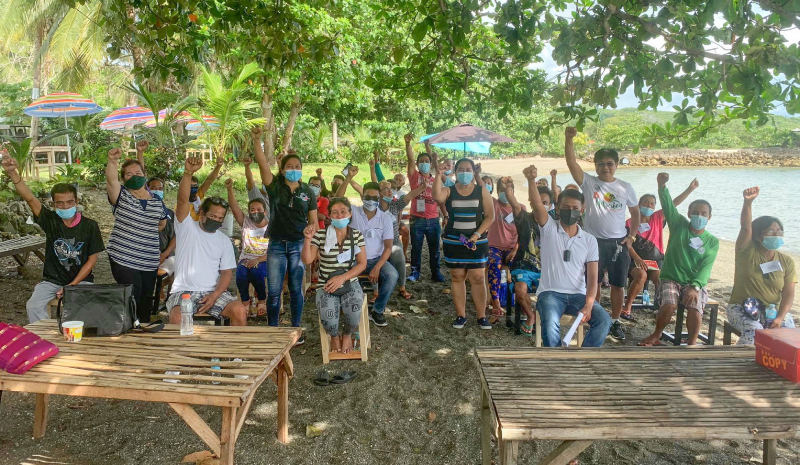
Last month, BDO Foundation inked a memorandum of agreement with the local government of Lian in Batangas for a pilot project on vegetable gardening. From a one-hectare lot provided by the LGU, 50 chosen families will each be given a 200-square meter portion for them to plant vegetables all year round.
“The objective is to increase their food supply and at the same time give them an opportunity to have a source of income,” Deriquito says.
BDO Foundation will provide the funding and at the same time conduct the financial literacy training to the participants so that their income will not go to waste.
Another project, which Deriquito takes pride in, is the financial education program for fisherfolks that includes a game called Fish N’ LEarn, the concept of which has been adopted by agriculture officials for use in their own training modules for farmers.
He says with the active involvement of BSP and BFAR, they were able to conceptualize and implement Fish N’ LEarn with a highly positive response rate because it is not only interactive, interesting and engaging, but the participants can fully relate to it.
“We find ways to make sure that even the training approach will appeal, will resonate with the participants so for these fisherfolks, we developed a financial literacy game called Fish N’ LEarn, which is basically a two-and-a-half hour session with five key messages we want to impart: First, take care of the seas because that is where they make a living; second, save for the future; third, grow their income by looking at other means like going into business; fourth, protect themselves with micro insurance coverage; and fifth, be responsible borrowers.
As they play the Fish N’ LEarn game, participants are given cards and other materials—similar to a Monopoly game. The players are given a situation or event—for example a typhoon, or a birthday party or community fiesta—and they will have to make two or three financial decisions. At the end of the session, the participants then compare notes to see who made the best decisions and who accomplished their financial goals.
Fish N’ LEarn was such a hit the BFAR even issued an administrative order mandating all its regional and provincial offices to offer this training tool with the hopes of reaching 1.9 million fisherfolks all over the country. Even the Agricultural Credit and Policy Council (ACPC) wanted to adopt Fish N’ LEarn’s template and asked BDO Foundation to extend and customize the training tool for farmers this time.
Striking the employee volunteerism spirit
Even with the backing of the financial muscle of BDO, BDO Foundation’s operations would not have been successful without the active involvement of the bank employees all the way up to the board of directors.
That’s why Deriquito says they have launched an employee volunteer program “because we want the employees to get involved… we want them to own the programs of the foundation and be proud of them.”
“We are providing them volunteer opportunities within the foundation and we are partnering with other NGOs to accommodate our employees who want to go because we cannot accommodate them all.”
He says the employee involvement is divided into four different themes, still according to the SDGs, to address the issue of poverty and hunger, education, environment and financial inclusion.
“For the employee volunteer program, we were encouraged by the board to embark on something like that, even if in the past there has already been a similar program, because they want it scaled up and organized so more would volunteer.”
BDO employees’ involvement, in fact, has been rooted in their disaster response and relief operations, another major initiative of BDO Foundation.
“We rely on our vast branch network to determine which communities are in need and tap employees who would help coordinate and distribute the relief packages to those affected by disasters or calamities,” Deriquito points out.
“We try to help in the rebuilding, reconstruction but we focus only on school buildings and the health centers since these are among the most important facilities in a community.”
BDO’s wide branch network all over the country gives BDO Foundation the capability to conduct relief operations immediately after a calamity. Leveraging on the volunteerism of branch officers and employees, BDO Foundation provides food packs, and in some cases, even hygiene kits and school supplies. In areas where there is no BDO presence, the foundation partners with church groups and other NGOs operating in the affected areas.
The rehabilitation and rebuilding work depends on the needs of the affected communities, but BDO Foundation gives priority to health centers or rural health units. Depending on the need and the presence of partners, the foundation also builds classrooms for public schools and housing units for affected families. In the past, the foundation was able to mobilize employee donations that were used to fund the construction of community centers and multi-purpose hallsand support livelihood projects.
Strengthening partnerships with NGOs
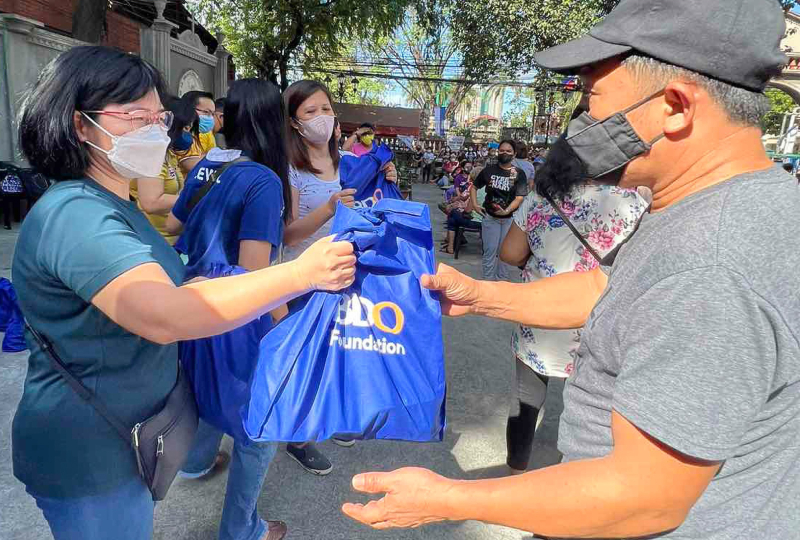
As an active member of the NGO community, BDO Foundation is duly accredited by the Department of Social Welfare and Development (DSWD), Bureau of Internal Revenue (BIR) and Philippine Council for NGO Certification (PCNC). It is also a member of the Association of Foundations (AF) and League of Corporate Foundations (LCF).
BDO Foundation says the recognition from these agencies and organizations is significant as it affirms the foundation’s status as a non-profit organization that meets standards of good governance, program relevance and effectiveness, sound financial management, credibility, transparency and accountability. The accreditation and recognition also pave the way for greater collaboration between the foundation, donors and government agencies.
Last year, BDO Foundation embarked on a partnership with the Don Bosco schools for a financial literacy program in its academic curriculum. BDO Foundation has sent employee volunteers to 9 out of 18 participating Don Bosco schools to act as trainers.
BDO Foundation also partnered with Tanging Yaman Foundation for the distribution of 5,000 Christmas food packs in about 17 parishes in Metro Manila and with Caritas Philippines, the umbrella organization of all Caritas units in the country, for the distribution of 20,000 Christmas food packs each year to needy families in the provinces. This Christmas food packs distribution started in 2020.
Onward to sustainability
Deriquito says while much have been accomplished the past year, a lot of work still needs to be done and BDO Foundation wants to be among those at the forefront of these activities.
“We would also like to say that we are happy doing this kind of job and we are also happy that through what BDO Foundation is doing, we're able to help communities and the government achieve their goals. We are happy that we are able to contribute even in a small way to the sustainability advocacies of the bank,” he says.
“It's the kind of work that you want to continue doing with joy.”
- Latest




















